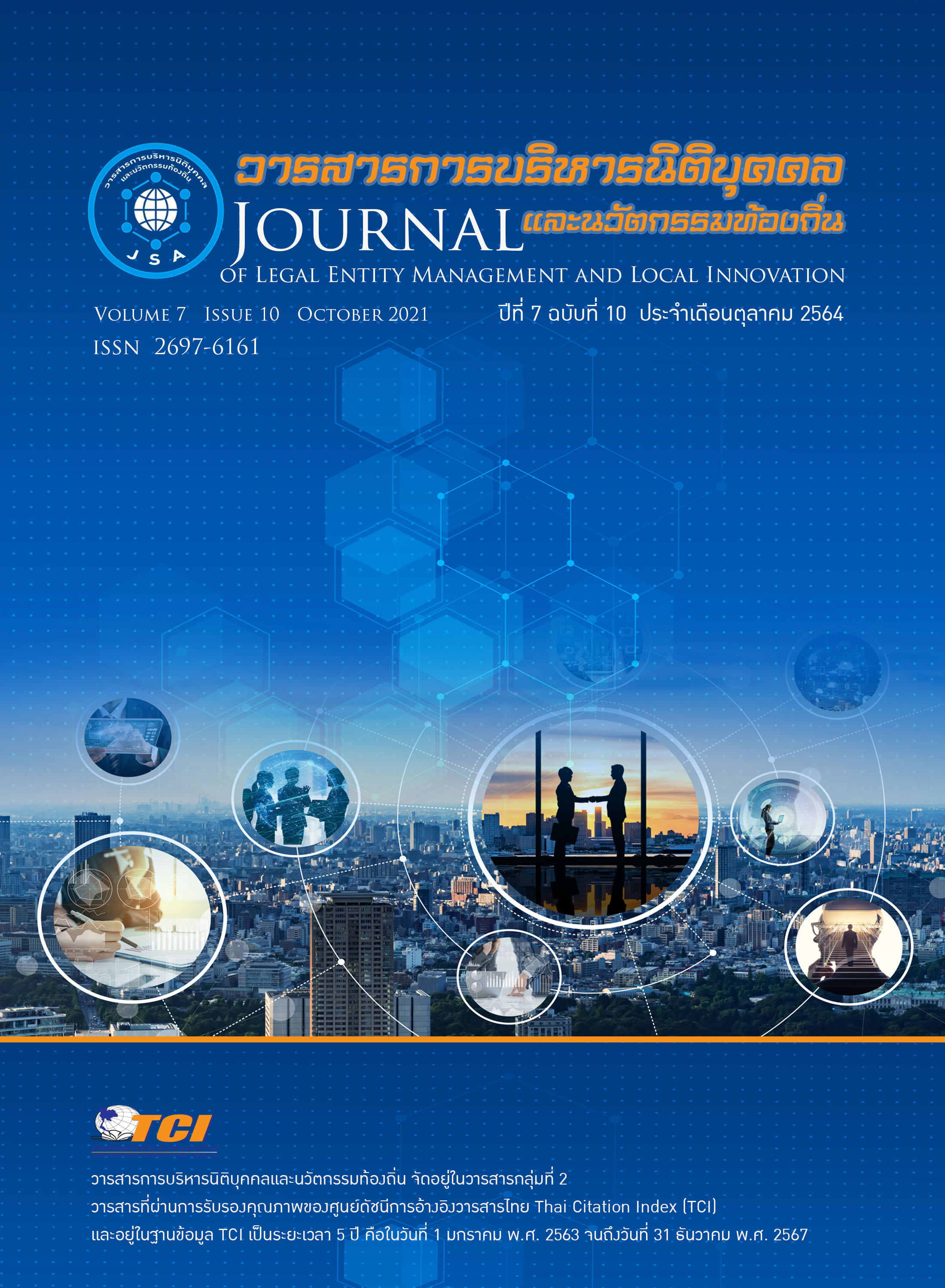Development of Guidelines on the Conduct of Online Classes at the Japanese Department of Nakhon Ratchasima Rajabhat University during the COVID-19 Pandemic
Keywords:
Conduct of the Class, Online Class, Japanese LanguageAbstract
This research aims to investigate problems, obstacles and satisfaction of Japanese-major students of Nakhon Ratchasima Rajabhat University towards Japanese online classes adapted from Robert Gange’s theory and Online Learning Environment Concept during the COVID-19 pandemic. The gathering data are also analyzed to apply as the guideline to improve the quality of online teaching methods to meet the needs of the Japanese language learners. The populations of this study include students majoring in Japanese at Nakhon Ratchasima Rajabhat University who have studied Japanese Language modules via online methods during the COVID-19 pandemic. Questionnaires were used as a research instrument and the data was analyzed by descriptive statistics such as percentage, means and standard deviation.
The result of the study showed that the bad signal from telecommunication providers and internet connection stability were the main cause of inefficient online learning. Moreover, many students could not stay motivated and focused during online classes at home due to the lack of appropriate environmental surroundings. As a result of mentioned cause, 89.6% of the participants prefer the traditional classroom learning to the online classroom. In terms of the students’ satisfaction of the online classroom, they reported satisfaction with “the lectures” and “the context” at ‘high’ level, whereas ‘the online class’ and ‘the learners’ are found to be at ‘moderate’ level. Participants reported to express their gratitude of “high” satisfaction towards the lecturers as they felt that they were given plenty of the opportunities to question, express their opinions and practice to improve their Japanese language skills. However, most of the students believe that online learning is less effective than the actual classroom learning. The result also concluded that the lecturers should increase activities to encourage their interests during online classes. And those activities or tasks should promote development of their Japanese language competency.


